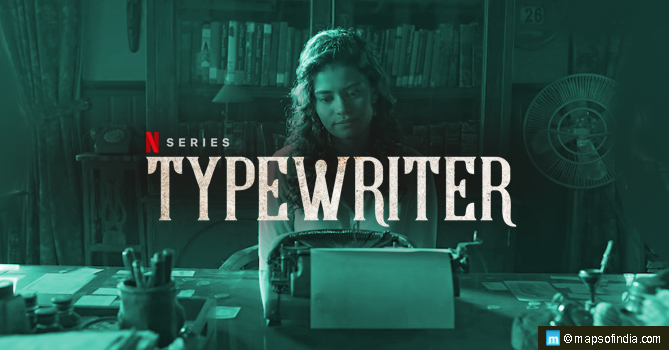
Choked is a Netflix original by Anurag Kashyap, portraying the change in the life of a woman banker, stuck in a mediocre financial circumstance; when she discovers her kitchen drain to be floating with wads of cash.
Directed by- Anurag Kashyap
Produced by- Anurag Kashyap, Dhruv Jagasia, Akshay Thakker
Written by- Nihit Bhave
Starring- Saiyami Kher, Roshan Mathew, Rajshri Deshpande, Amruta Subhash
Plot
A woman from a bourgeois class, Sarita played by (Saiyami Kher) is a routine banker who lives with her son and her jobless musician husband. Money has always been a matter of concern in the family, along with overflowing kitchen sewage. The lack in the household is in such a bad shape that there is a worsening cold conflict between the married couple. The situation is that worse, they even argue on matters like who buys more crayons.
However, one-night Sarita’s fate transpires in the same kitchen drainage, which was an allegory of her weighing down.
Analysis
Kashyap is known for his intelligence and a distinct voice in his storytelling – gore, absurdism, and metaphors. ‘Choked’ is no different. It is well-defined, palpable, and relatable to say the least.
Like his signatures, it has the vagueness of the past which barges into the present. However, there is no simplification. Instead, the same unuttered past has been intelligently used as a plot device to build the story. Although, there are little glimpses of the past that engages the audience well.
Once the story gains its momentum, there is the introduction of the sub-plot – demonetisation. The house is shown to be divided – at one hand where Sushant played by Roshan Mathew, and few of the neighbours think it is a masterstroke, on the other Sarita, a banker who is at the most receiving end in the narrative, falls victim to the circumstance.
Here Kashyap took the opportunity to depict the situation of the bankers during demonetisation, especially women.
When exhausted and overworked Sarita comes back home, her husband enlightens her about how Modiji worked as a tea seller and left his wife for the nation. She replies “Kuch nahi toh wahi kar sakte ho kamsekam ghar main shanti toh milegi”. Agitated the ‘man’ of the house says “Tumhara problem kya hain Modi ji se?” In a calm but stern voice, she replies “Jaan nikal rhi hain bank main phir ghar saaf nahi rehta, time nahi hain Modiji ke bare main sochne ka”. Precisely this sums up what everything a middle-class working housewife thinks about the idol politicians of the nation.
Another significant scene was to show the mental status of the bankers in the demonetisation chaos. When an old woman requested to stretch the limit from 4000 to more notably for her because she is aged, Sarita says “ye bank hain, yaha paise milte hain sympathy nahi. Jisko vote diya tha uske agey haath jodo”.
Kashyap very wisely chose to keep the commentary subtle yet profound. However, it remains in the periphery.
Everything in this film had the potential to captivate its audience until the very end. However, the build-up mostly goes in vain since nothing comes out of it, and everything seems to fizzle out.




